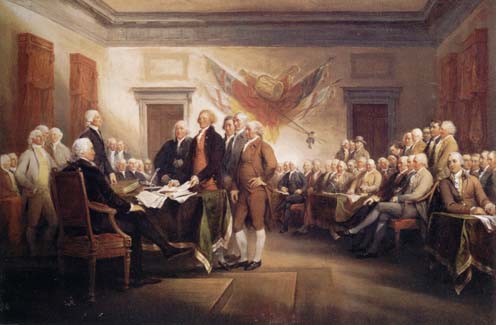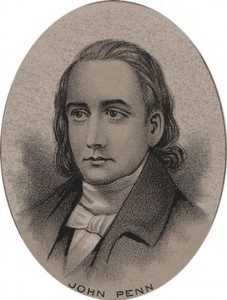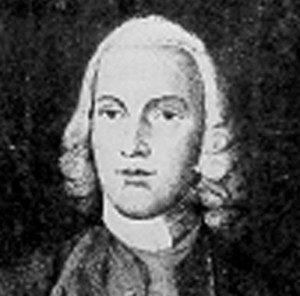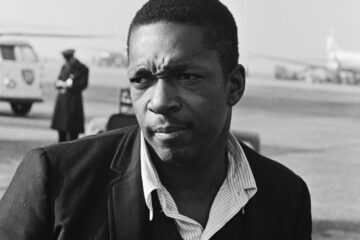Those Who Stood Up and Signed: Part 11

I still remember how our Social Studies in high school drilled into our minds how the signers of the Declaration of Independence were risking their lives signing that document. That they were, yet they were not going to allow themselves to be bullied to by any music celebrity, actor, anyone who considered themselves “royalty”, or anyone regardless of their religious beliefs, sexual preferences, country of origin or gender.
Much like their world, in today’s world, standing up for a certain political view can get you seriously injured or killed. Neither side has a monopoly on peace or love. If you dare defy an anti-Trump protester one can get seriously hurt, injured, tortured on Facebook, or killed. The events in Charlotte, NC have shown us that that evil organization, the KKK is still active too.
I want us to better understand these 56 men who were willing to risk everything for their country. So, in the following weeks, I am going to tell you about them, in alphabetical order mostly. I am not sure how many weeks it is going to take. I guess it will be based on how much I can actually find out about them as individuals.
Most of the biographical information will be taken from The Society of the Descendants of the Signers of the Declaration of Independence which gives extensive bios of each of the signers. Here, I shall highlight some of the parts of their lives that showed their character and spirit.
Robert Morris (01/31/1734-05/08/1806) was the grandson of an ironworker and the son of a mercantile genius. His father died when he was only 16 and he was completely alone in America, having lost his mother at age 2. Undaunted, he and a few others started the London Coffee Group, which later became the Philadelphia Stock Exchange. He also spent time as a ship captain on a trading mission to Jamaica which probably had something to do with him starting a mercantile and banking company called Willing, Morris & Co. They had three ships, but they grew. He wanted to have a peaceful resolution with Britain and refused to sign on July 4th, but he eventually did. He was very rich and very successful in business and he used his riches in support of George Washington and the revolution. He was given the title of “financier of the revolution”. He worked tirelessly in getting the United States on a good financial/economic basis. His later life was mired with some financial scandals and bad decisions such that he was for a period of time in a debtor’s prison but he passed away at home with family.
“In the Rotunda of the U.S. Capitol hangs the famous 12 X 18 foot painting by John Trumbull called “The Declaration of Independence”. Robert Morris is shown in a group of ten seated figures to the left of John Adams. He is the one nearest the viewer, in the yellow coat, seated at a table with a sheet of paper hanging over the desk.”
 John Penn (05/06/1740-09/14/1788) was no relation to William Penn, the founder of Pennsylvanian. He was actually of North Carolina. Actually there is an incredible dearth of information about his early years, except that he was born and raised in Virginia to parent of John Sr. and Catherine. However, when he was 18, due to his father’s death, he was mentored by Edmund Pendleton, a lawyer who was the “great orator of the colonies” as Thomas Jefferson described him. He was also the writer of George Washington’s will and his library tempted John Adams and Jefferson to jealousy. Under Pendleton’s tutelage, Penn became a lawyer himself and got married and moved to North Carolina. It is there he became involved in local politics. His desire for independence was fervent and boisterous. John Penn came to be on the Britian’s most wanted list for hanging as he maligned Britain and stood up for independence. Pendleton never went that far and hoped for a peaceful resolution. Thanks to him, the North Carolina legislature led all the other colonies in declaring for a complete separation from Great Britain. He signed and fought and built our nation.
John Penn (05/06/1740-09/14/1788) was no relation to William Penn, the founder of Pennsylvanian. He was actually of North Carolina. Actually there is an incredible dearth of information about his early years, except that he was born and raised in Virginia to parent of John Sr. and Catherine. However, when he was 18, due to his father’s death, he was mentored by Edmund Pendleton, a lawyer who was the “great orator of the colonies” as Thomas Jefferson described him. He was also the writer of George Washington’s will and his library tempted John Adams and Jefferson to jealousy. Under Pendleton’s tutelage, Penn became a lawyer himself and got married and moved to North Carolina. It is there he became involved in local politics. His desire for independence was fervent and boisterous. John Penn came to be on the Britian’s most wanted list for hanging as he maligned Britain and stood up for independence. Pendleton never went that far and hoped for a peaceful resolution. Thanks to him, the North Carolina legislature led all the other colonies in declaring for a complete separation from Great Britain. He signed and fought and built our nation.
“Although John Penn never wavered in support of the cause of freedom, he was a weary man when he returned in 1781 to his home and beloved wife in Stovall, his health somewhat shattered by the wear of six years in Congress. The strain had been heavy, and weariness must have removed from his sight any dreams he may have had offuture political or judicial goals.He walked the path of duty without
flinching. ”
George Read (09/18/1733–09/21/1798) was born in Maryland, went to school in Pennsylvania, but represented Delaware at the Continental Congress. He served as an attorney and then as Attorney General in 3 Delaware counties until 1774. At the Continental Congress, he opposed Richard Lee’s proposal for independence and voted against. However, he eventually signed. In 1777, he took over as Governor of Delaware when the present governor was captured by the British. He helped raise money for the state militia during the war. After the war, he was State Senator and Chief Justice.
Cesar Rodney (10/07/1728–06/26/1784) was an interesting man, much different than all the others. He was a bachelor. He was afflicted with a facial cancer that left him unattractive to women and made other men uneasy. He was good friends with George Washington and his grandfather was the first missionary to Dover, Delaware. John Adams wrote of him, “aesar Rodney is the oddest looking man in the world; he is tall, thin and slender as a reed, pale; his face is not bigger than a large apple, yet there is sense and fire, spirit, wit and humor in his countenance.” His appearance was no hinderance to him making a difference. He was appointed or elected to 7 different positions in Delaware, including representative at the first Continental Congress and Speaker of the Assembly and President of Delaware. When he died, no one knew where he had been buried. However, when he died, he freed all 200 of his family slaves at his family plantation in Delaware.
 George Ross (05/10/1730–04/14/1779) Not a lot is known about George Ross. He has one of the shortest entries at the website for the Society of Descendants of the Signers of the Declaration of Independence. I looked around at other sites and they were not much better. George was the son of a minister. He established his law practice at the age of 20 in Lancaster PA. In 1768, he was elected to the state of Pennsylvania’s legislature and there came face-to-face with many of the issues that colonialists were dealing with. This made him support the push for independence even more. He served as a Colonel in the Continental army. He held many other positions in the state of Pennsylvania, including a judgeship in the Pennsylvania Court of Admiralty. He died at 49.
George Ross (05/10/1730–04/14/1779) Not a lot is known about George Ross. He has one of the shortest entries at the website for the Society of Descendants of the Signers of the Declaration of Independence. I looked around at other sites and they were not much better. George was the son of a minister. He established his law practice at the age of 20 in Lancaster PA. In 1768, he was elected to the state of Pennsylvania’s legislature and there came face-to-face with many of the issues that colonialists were dealing with. This made him support the push for independence even more. He served as a Colonel in the Continental army. He held many other positions in the state of Pennsylvania, including a judgeship in the Pennsylvania Court of Admiralty. He died at 49.
Romans 12:2 Do not be conformed to this world, but be transformed by the renewal of your mind, that by testing you may discern what is the will of God, what is good and acceptable and perfect.
————————————————————W.







No Comment